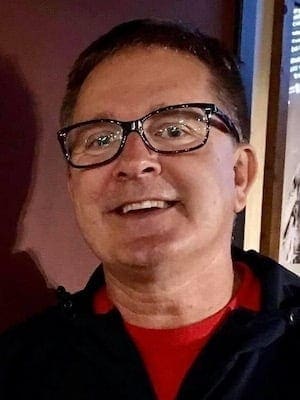Washing dishes. This is how I remember Momadu.
Washing dishes is a chore, you know. In the pre-dishwasher days in America, my mom put “wash the dishes” on her children’s list of things to do every day. We washed them, obediently though begrudgingly.
In the pre-dishwasher days in Mali, though, we asked Momadu to wash the dishes, and he washed them with joy.
How could he do something as mundane as washing dishes and do it with joy?
Perhaps it was because joy is a fruit, a fruit that grows on the Jesus tree, the tree that takes root in the heart when someone believes, when someone has ears that hear, eyes that see and a heart that understands. Perhaps it was because Momadu believed.
I remember him wearing a tattered, blue T-shirt with an imprint from some Baptist church somewhere in Kentucky that some missionary gave him a long time ago.
It was stretched at the neck and dotted with holes and made him look like a peasant and that, indeed, was what he was.
He was a peasant farmer trying to eke out an existence for his family and for himself on a harsh and broken land.
He was a peasant parson trying to love the Lord his God with all his heart, soul, mind and strength, trying to love his neighbor as himself. He was a peasant cook, too.
I remember his worn, dirty flip-flops on the ground in front of the door of our community house at the mission station.
How much was his soul like his flip-flops? It was worn from much serving, worn from trying to live out the second part of the great commandment.
In Mali, flip-flops cost less than a dollar. That doesn’t seem like much money to me. If my flip-flops were like his flip-flops, I would throw them away and buy a new pair.
One dollar, however, can buy three days of vegetables to put into a family’s sauce, so when Momadu’s flip-flop strap broke, he repaired them and kept on wearing them until they were worn out.
In the same way, Momadu would keep on loving until his soul was completely worn out.
That will be his mark of Christ one day when he limps toward God, and God will hold him in God’s heart until his soul is healed and whole again.
I often wonder, “Who is a saint in my world today?”
One time, my flip-flops were filthy dirty, caked in mud and tainted with cow manure. I took them off at the back door of our house and went inside to take a shower.
After I dressed, I walked over to the window to watch the dusking of afternoon into evening, when the sun hung on the edge of the African sky like a giant, red-ripe tomato.
As I looked at the sky, I lowered my eyes and saw Momadu washing my shoes. He was kneeling down beside our water spigot and washing my shoes with the simplest of elements: water and his hands.
I know for sure that Momadu was not perfect, but I know equally for sure that he was a saint.
Jesus said, “Blessed are you who are poor, for yours is the kingdom of God.” That kingdom is well cared for in Momadu’s hands.
Trevor Barton teaches second grade and is a member of First Baptist Church in Greenville, S.C.
A fourth grade public school teacher and member of First Baptist Church in Greenville, South Carolina.

